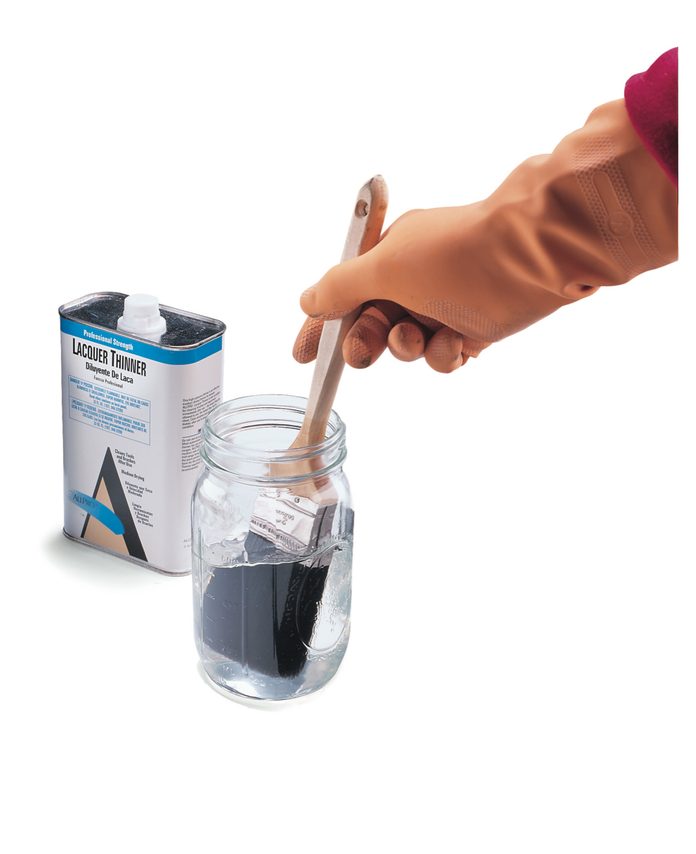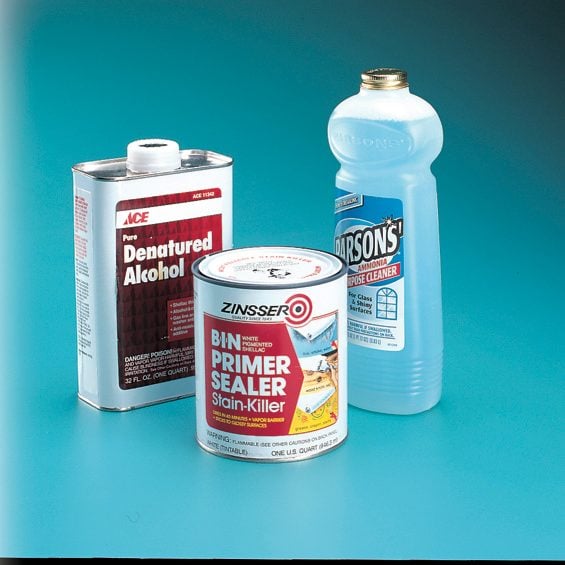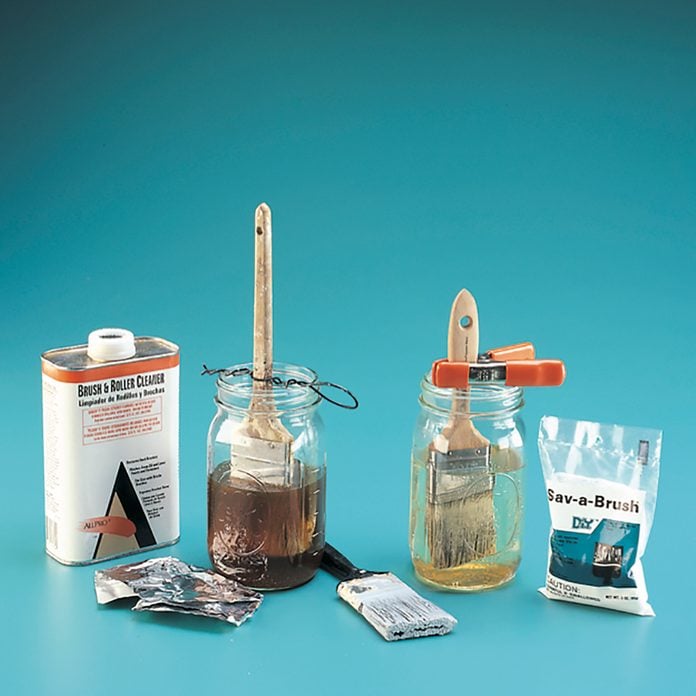Best Way To Wash Paint Brushes
How to Clean Paint Brushes
Cleaning tips for paint brushes, whether you're using latex-, oil- or shellac-based paint.
![]() Time
Time
A few hours
![]() Complexity
Complexity
Beginner
![]() Cost
Cost
$20-50
Introduction
Good paint brushes are worth the money, whether you're painting with latex, oil or shellac. Here's how the pros clean up their expensive paint brushes. Plus, we included some tips at the end for reviving your petrified paint brushes.
Tools Required
Materials Required
- Denatured alcohol
- Household ammonia
- Lacquer thinner
- Newspaper
- Paint thinner
A Good Paint Job Starts With a Good Brush
One expensive paint brush is way better than a handful of cheap brushes. Get a good nylon or polyester brush for painting with latex and a good natural (animal hair) bristle brush for oil paints. Don't use a natural-bristle brush for water-based paints like latex. The natural fibers will swell, lose their shape and eventually lose their strength, too. If you can't get the buying information you need from a home center or hardware store, go to a retail paint store for assistance.
ⓘ
Project step-by-step (14)
Step 1
Cleaning Water-based Finishes & Latex Paint From Brushes
Scrape Off Excess Paint
- Use the rim of a can and then work some of the paint onto newspaper before cleaning in soapy water.

Step 2
Wash the Brush In a Pail of Soapy Water
- Work the paint free of the bristles with your hands and a brush comb.

Sign Up For Our Newsletter
Complete DIY projects like a pro! Sign up for our newsletter!
Do It Right, Do It Yourself!
![]()
Step 3
Spin the Brush In a Pail
- Remove any remaining paint and water.
Spin flammable solvents only in well-ventilated areas away from furnaces, pilot lights and electrical devices of all kinds. Outdoors is best.

Step 4
Rinse the Bristles In a Pail of Clean Water
- Work the bristles with your hand. After a few minutes, spin the brush again and then rinse it in another pail of clean water.

Step 5
Wrap the Brush With Heavy Paper
- Pre-fold the paper as shown, then wrap it around the brush and tie it loosely with string.
- Pro Tip: This step is critical to retain the shape of the brush

Step 6
Cleaning Oil-based Varnishes & Paint From Brushes
When learning how to clean oil paint brushes always work in a well-ventilated area when cleaning brushes in solvents such as paint thinner, lacquer thinner, alcohol and ammonia. In fact, it's best to work outside. Don't ever clean solvent-laden brushes around water heaters, stoves or any device with an open flame or potential electrical spark. Keep the solvents in proper, well-marked containers out of reach of children and pets.
Step 7
Rinse the Brush Thoroughly in Paint Thinner
- Work the bristles with your hands
- Pro Tip: Wear chemical-resistant gloves, which are available at your hardware store or home center.
- If necessary, use a brush comb to get rid of paint clinging to the brush.
- Note: This is less of a problem with oil paint than with latex.

Step 8
Spin the Brush for 10 Seconds
- Use a brush-and-roller spinner after nearly all the paint solids are out of the brush.
Step 9
Dip Brush Into Clean Paint Thinner
- Work any remaining paint out of the bristles.
- Pro Tip: Agitate the bristles for at least two minutes.
Step 10
Spin Brush a Second Time
- Use a brush-and-roller spinner
Step 11
Dip in Lacquer Thinner
- Agitate the brush for about a minute to remove any remaining paint residue;
- Shake the brush onto newspaper to remove the lacquer thinner and residue.
Lacquer thinner is extremely flammable—be sure to do this outside.

Step 12
Clean the Brush in a Bucket of Soapy Water
- Use laundry or dish soap. Work the bristles for only one minute.
- Note: Purists may not want to do this, especially with natural-bristle brushes, but a quick cleaning with water won't damage the bristles.
- Spin the brush free of water and then shape the brush as shown above.
Pro Tip: Don't dump the paint thinner when you're finished. Let the paint solids settle to the bottom of the jar, then pour off the rest into a clean container. Let the solids dry outdoors and then dump them in the trash for landfill or hazardous waste. Call your local trash service for proper disposal.
Step 13
Cleaning Shellac-based Paint From Brushes
Cleaning clear shellac varnish or pigmented shellac paints requires a different solvent than does latex and oil. You must use denatured alcohol or an ammonia household cleaner.
When using an ammonia solution:
- Mix it with warm water at twice the strength recommended for cleaning floors;
- Rinse the brush in lukewarm water, and spin and wrap it (as shown above);
- When using denatured alcohol, follow the same steps as for the oil-based paint cleanup, but use alcohol instead.

Step 14
Reviving Petrified Brushes
If you find your paint brushes have petrified since the last time you used them, don't throw them away. You can buy either of the brush cleaners shown below to dissolve the crusty hard paint. However, choose carefully.
- The solvent-based cleaner is great for any brush (natural or synthetic);
- The water-based cleaner on the right is only good for synthetic brushes.
Both solvents will remove hardened latex and oil-based paint. The brushes must soak overnight (cover the container on the left with foil in a well-ventilated area). If the paint isn't softened after 24 hours, let the brushes soak another day. You must suspend the brushes as shown or the bristles permanently bend as they soften and settle into the bottom of the jar.
Once the bristles are supple, remove the brush and comb away any solids.
- If you're using the solvent-based cleaner, soak the brush again for an hour in a clean solution to remove any more solids, then follow the procedure for cleaning oil-based paint from brushes.
- If using the water-based cleaner, wash the brush in soapy water and follow the directions for cleaning latex paint from a brush.

Best Way To Wash Paint Brushes
Source: https://www.familyhandyman.com/project/how-to-clean-paint-brushes/
Posted by: stampernernat.blogspot.com

0 Response to "Best Way To Wash Paint Brushes"
Post a Comment